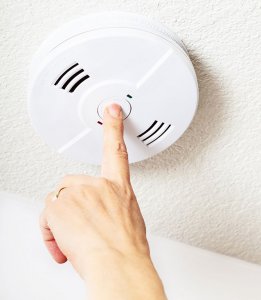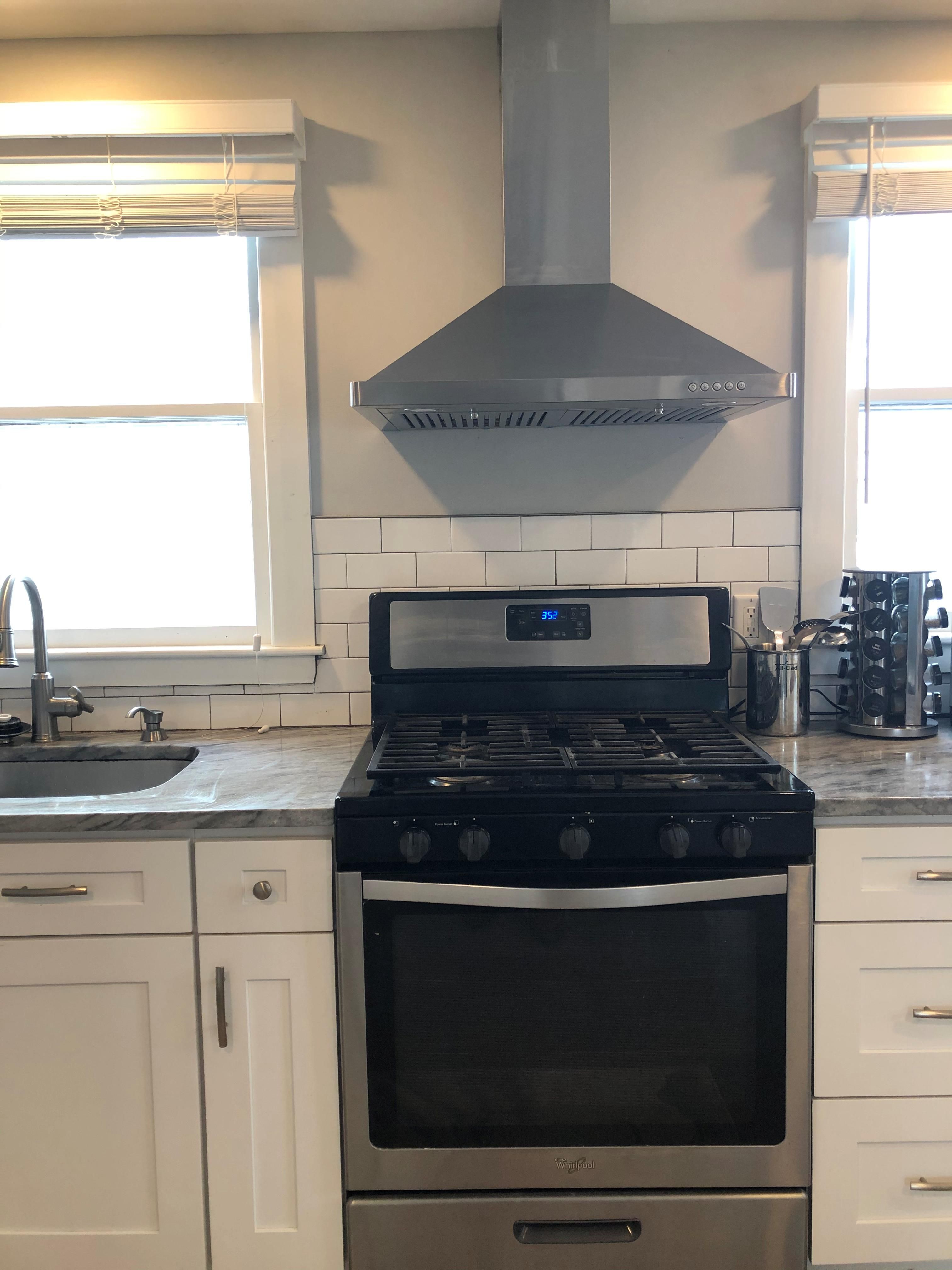Picture this: you’re about to sear a beautiful ribeye on your stovetop. That satisfying sizzle of the steak on your stovetop is quickly followed by the screeching of the smoke detector.
Nothing ruins dinner more quickly than a headache-inducing smoke alarm.
Is your smoke alarm too sensitive? If you’re unable to cook a meal without the smoke detector going off, you should consider your options. There are some less-than-ideal options, and some solid long-term solutions.
Before exploring potential solutions below, let’s quickly review why your smoke detector might be going off when you're cooking.
Your smoke detector may go off when you’re cooking because vapor, smoke, or steam is entering the device. Both ionization and photoelectric smoke alarms are so sensitive to foreign objects that even a cloud of dust could trigger the alarm.
If you find that your smoke detector goes off even when you’re not burning anything, it could be because of poor placement or too many alarms in close proximity of each other. Solutions to the types of false alarms you’re facing include replacing your smoke alarm with a heat detector, which doesn’t interfere with cooking, or installing a range hood to collect and release fumes, smoke, and steam.
Different types of smoke detectors
 First, it’s important to recognize that there are different smoke detectors, and they work differently to detect the danger of a fire.
First, it’s important to recognize that there are different smoke detectors, and they work differently to detect the danger of a fire.
- Ionization smoke alarms contain an insignificant amount of radioactive material between two electrically charged plates. This material ionizes the air (hence the name), which causes a current to flow. If smoke enters that area, it disrupts the flow of ions, which activates the alarm. Ionization smoke detectors are good at detecting fast-moving, flaming fires – like kitchen fires.
- Photoelectric smoke alarms contain light sensors in a sensing chamber. When smoke enters that chamber, it reflects light onto the sensor and triggers the alarm. Photoelectric smoke alarms are particularly responsive to fires that start with a long period of smoldering – like fires that start with unattended candles or cigarettes.
- Dual-sensor alarms combine both technologies in one unit. To achieve a similar result, fire marshals recommend that you install both photoelectric and ionization smoke detectors throughout your home.
Now, let’s go through some potential solutions to a smoke detector that frequently goes off when you’re cooking.
Good idea: Installing a heat detector in your kitchen
At HomeWiz, we’re huge proponents of smoke detectors. That being said, too many or poorly placed smoke detectors can be a bad thing. The National Fire Protection Association (NFPA) doesn’t require a smoke detector in the kitchen, because it will often trigger false alarms.
However, the NFPA requires that a smoke detector to be installed in at least one common area on each floor, and at the bottom and the top of your staircase.
For some homes, this means that the smoke detector is in or is close to the kitchen. If you can’t avoid having a smoke detector in your kitchen, we recommend that you install a photoelectric smoke alarm, which will generally be less sensitive to standard kitchen smoke than an ionization smoke alarm.
No matter what, safety is the ultimate goal. That’s why we recommend heat detectors to protect against kitchen fires. Heat detectors work by detecting quickly rising temperatures, or trigger when the air reaches a certain temperature. However, it doesn’t interfere with cooking because it doesn’t get set off with steam, smoke, or normal cooking temperatures.
Bad idea: Removing your smoke detector
Removing a smoke detector, covering it, or taking the batteries out is a risky move. There’s always the possibility that you’ll forget to put it back up, uncover it, or put the batteries back in, which could be a fatal mistake. Three out of five home fire fatalities occur when there’s no working smoke detector. Besides, taking smoke detectors down and then up again isn’t a great long-term solution.
In most New England states, it’s illegal to remove or cover smoke detectors. For legal and safety reasons, we don’t recommend it.
Good idea: Installing a range hood

![]() A range hood is one of the best solutions to this problem. A range hood goes over your stove and uses a fan to collect the smoke, steam, and fumes that you generate while cooking. There are two main types of range hoods, though, and the differences are crucial:
A range hood is one of the best solutions to this problem. A range hood goes over your stove and uses a fan to collect the smoke, steam, and fumes that you generate while cooking. There are two main types of range hoods, though, and the differences are crucial:
- Ductless range hoods recirculate the air by filtering the air they suck in and blowing them out again. Because there is no duct for the air to travel through, that air simply goes back into your kitchen. Ductless range hoods are better than nothing, but generally ineffective for removing smoke.
- Ducted range hoods remove air, debris and smoke by sucking it through ducts that are connected to the outside of your home. A powerful, ducted range hood is extremely adept at removing smoke, and are a great option for home cooks.
The ability to cook, sear, and sizzle without interruption will make mealtimes much more enjoyable.
Schedule a Ducted Range Hood Installation Today
Installing a ducted range hood is best reserved for professionals. Installation requires cutting a hole for the vent and creating a vent pipe opening, among other tricky tasks. Installation gets even more difficult if your oven doesn’t directly abut an exterior wall, or if your home is older and a bit more ‘quirky.’
HomeWiz technicians are licensed to work in Maine and New Hampshire and have installed many ducted range hoods. Once you decide that a ducted range hood is the best way to go, our expert technicians can handle the installation with ease. Schedule an appointment today by calling 1-844-RINGWIZ.